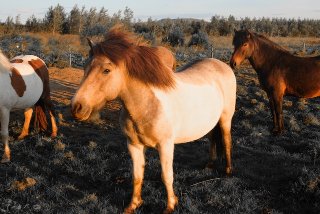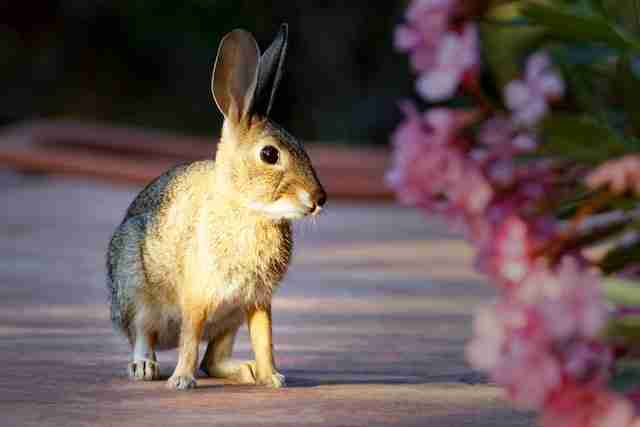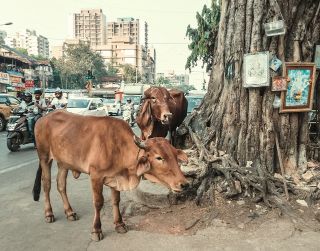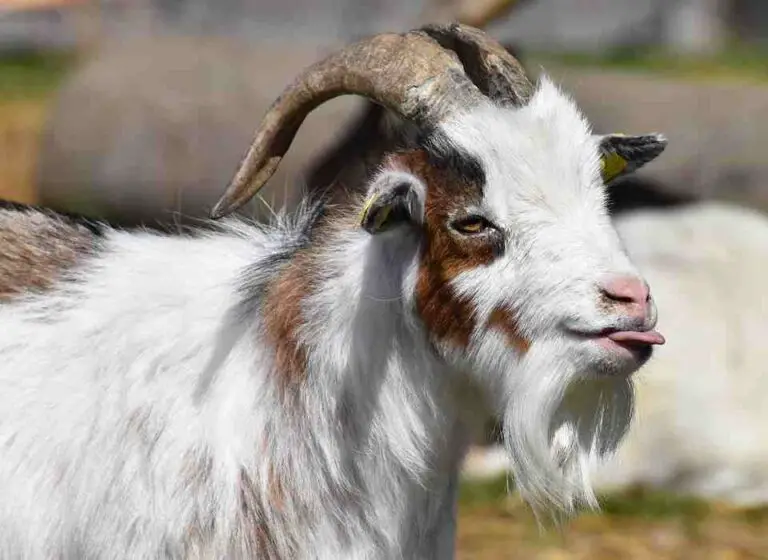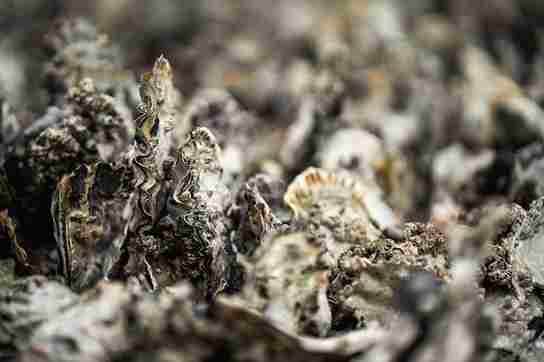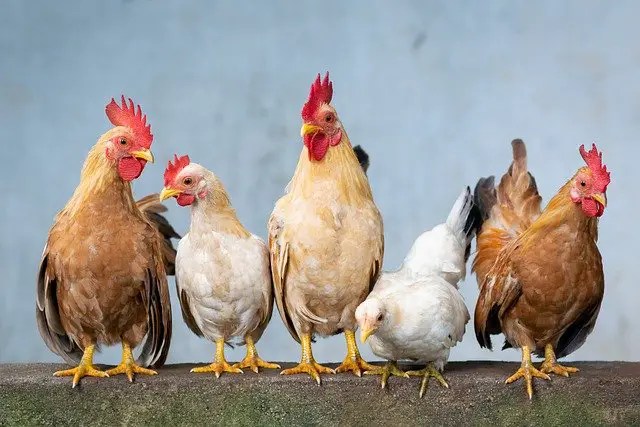Can A Bull Breed His Offspring?
If you’re into livestock production, then breeding should be a huge part of your work. One crucial decision you’ll have to make is choosing which cow to mate with your bull. If you’re planning to replicate certain traits, then it is common to use selective inbreeding. One question that frequently comes up is whether or not to mate a bull with his offspring.
So, can a bull breed his offspring? Yes, a bull can breed his offspring but this is not usually a good practice.
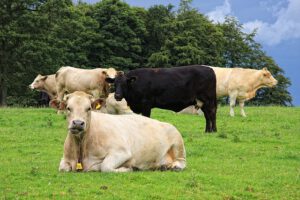
While inbreeding (mating parents and their direct offspring) can amplify certain desirable traits in your cattle, it can also lead to the appearance of recessive genes and other abnormalities. These commonly include physical deformities, reduced vigor and fertility, and decreased growth.
Inbreeding isn’t necessarily *bad*, but doing it continuously can be disastrous. It happens to be less practiced today as it used to be due to the reason already mentioned.
Can you breed a bull with his daughters?
Yes, you can breed a bull with his daughters. But this is not advisable. In the world of humans, this is called incest and can create issues in the calves.
A father-daughter breeding is very common and is regarded as the highest level of inbreeding.
Since you’re pairing two animals with similar genes, the amount of homozygosis genes will be more in the offspring. Sometimes, this can be an advantage, and sometimes, it could be fatal.
On the positive side, it can produce offspring that are uniform. This can be useful if there are certain good traits in the parents you wish to replicate, as commonly seen in selective breeding.
On the negative side, this reduces genetic diversity. This is expected since the same genes are used from the parent bull and no new unrelated genes are introduced. This puts the offspring and lineage at risk of yielding to changing environmental conditions, inherited genetic defects, diseases, and even physical deformities. This is often the case if the sire has any genetic conditions.
Inbreeding tends to occur more frequently in small herds where only one bull is used for servicing.
What Happens if a Bull Breeds his Daughter?
As earlier indicated, breeding a sire to his daughter is the highest level of inbreeding, and the result can go either way – GOOD or BAD.
If there are good traits in both parents, then there’s a high chance, these traits will be magnified in the calves. This may include good milk production, nice disposition, high activity, and so on.
In the same way, negative traits from the parents (if there are any) can double up in the calves which might lead to death, birth defects, reproductive problems, etc.
Unfortunately, most negative traits are not usually noticeable until they appear. This is why inbreeding is somewhat “risky” even though there appears to be nothing wrong with it. So it’s up to you to weigh the pros and cons.
Another thing I would be worried about is the potential damage that could be done to the daughter (heifer parent). If the bull is big and aggressive, and the daughter is a virgin heifer, then there’s a chance her private organ would get perforated, which may lead to peritonitis and probable death.
Can You Breed a Bull Back To His Mother?
Yes, you can breed a bull back to his mother. It is very similar to a bull breeding his daughter – the same level of inbreeding occurs.
However, again, I would say this is not ideal, as it can go either way – good or bad. If there are a lot of good genes in the bull and his mother, then mating them with each other will concentrate the genes in the offspring. On the other hand, if the bull and mother have bad genes, then they will become more apparent.
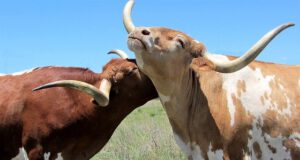
If you decide to breed a bull to a dam, then make sure there is nothing undesirable in any of them, or else you won’t be pleased with the result. Sadly, some bad genes may not be noticeable until when they fully manifest. In fact, some cows and bulls may look fine on the outside but still have genetic defects you didn’t know about.
My advice is to leave the job to more experienced breeders, as they are in a better position to select the right cattle for pairing.
Can You Breed Brother and Sister Cows
Yes, you can breed brother and sister cows. This is another form of inbreeding that may also lead to inbreeding depression though this usually occurs at a lower level compared to a father to daughter breeding. Inbreeding depression may include decreased fertility and physical activity.
In most cases, half-siblings are mated instead of direct siblings.
Mating a half-brother to his half-sister usually result in little to no defects in the calves, except in a situation where there’s a major defect in the genes of the parents. Even when there’s a depression of fitness and production, it may not be fully noticeable.
Effects of Inbreeding in Cattle
Here are some of the things that could happen when inbreeding goes wrong.
- Reduced Growth
Continuous inbreeding often leads to a reduced growth rate in the progeny. As a result, the weight of the animal is also affected. In other words, the offspring will grow at a slower rate, while the mature weight decreases considerably. This results in decreased adult size.
This can mean different things depending on what you want to use the animal for.
- Reduced Production
When an animal has a defective growth or decreased weight, there’s an economic implication to the problem. Things like milk production, litter size, egg production, carcass quality, and so on, are negatively affected, which can affect your business as a farmer.
- Reduced Reproductive Performance
Another risk of practicing intense inbreeding is reduced reproductive performance. This affects both male and female progenies. For instance, puberty delay can occur, which slows down the development of the male testicles or female ovaries, as the case may be. In the same way, there may be an increase in the death of developed embryos and a reduction in gamete formation.
- Increase in Mortality Rates
Inbreeding can also increase the rate of mortality among cattle. It is not uncommon for progenies to be born dead or for the cow/heifer to have a miscarriage, especially in sire-daughter and dam-son breeding. In the same way, surviving offspring may develop a weak resistance to diseases and the prevailing conditions in the environment.
- Appearance of Defects
With inbreeding, there’s also a chance the offspring can develop lethal traits or defects. A good example is cryptorchidism. Other examples are increased facial asymmetry, syndactylism, Brachyspina, parrot jaw, and so on.
How to Avoid Inbreeding in Cattle
To avoid inbreeding in cattle, there are two things you could do.
The first one, which also happens to be the most expensive, is to replace the bull after two years. In other words, you should use the bull not more than two successive breeding seasons. This method is less common and can be very expensive. Only use it if you want to retain and raise replacement heifers.
Another thing you could do to avoid inbreeding is to sell all the heifers produced by the sire and buy replacement heifers in their place. In other words, you keep the bull but sell his daughters or exchange them for other heifers or cows that are not from the same held. You can also use the heifers (daughters) for meat, whether personal or commercial. From the standpoint of cost, this seems to be the better solution as opposed to buying a replacement bull.
As earlier indicated, the replacement heifers or cows you’re buying must not be related to your bull in any way. This method allows you to keep your bulls for longer periods, and be able to form a herd that wholly consists of mature cows (if you buy replacement cows). By “mature cows”, I mean cows that are 3 years old or older.
Conclusion: Can a bull breed his offspring?
So, again, can a bull breed his offspring? Yes, he can. But you must be very sure about the outcome to avoid undesirable traits appearing in the offspring.
As earlier indicated, inbreeding intensifies the appearance of traits in the progeny, and it does this by restricting the gene pool. Unfortunately, it may not be possible to detect bad genes by merely looking at a cow. It is due to this uncertainty that inbreeding is not recommended.
But by itself, inbreeding doesn’t really “cause” anything. It just brings to light what’s already there.
So, here’s my candid advice to you – if you must breed a bull with his offspring, then make sure you’ve considered the advantages and disadvantages, and have it done by an experienced professional.
